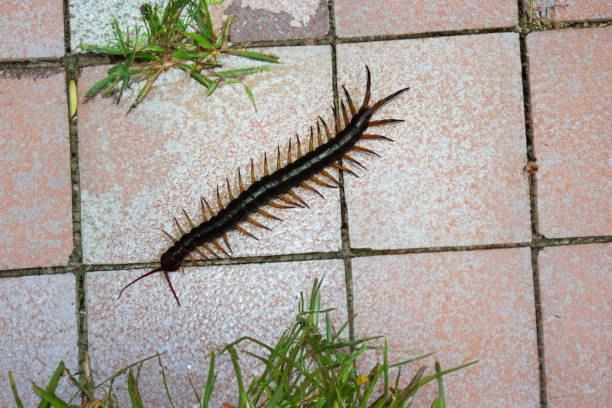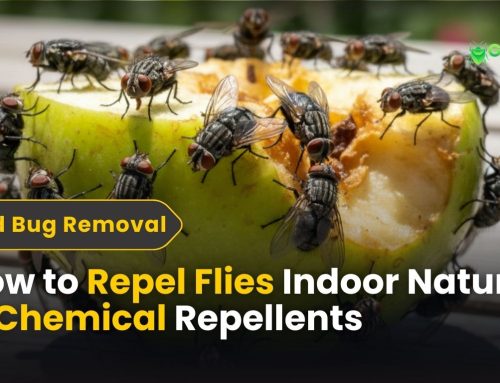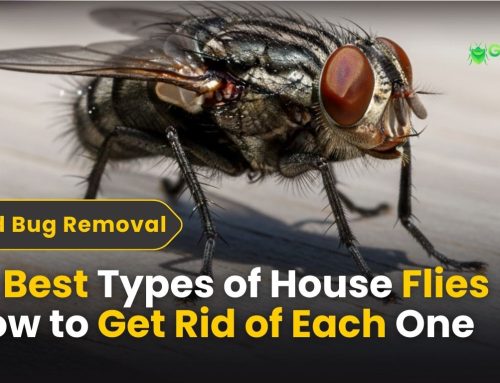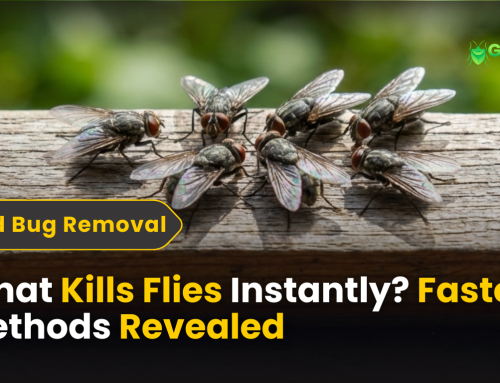The Hidden Impact of Centipedes: Essential Roles in Ecosystems
Centipedes are fascination yet often overlooked creatures that play a vital role in maintaining ecosystem balance. These fast-moving, multi-legged arthropods are essential contributors to soil health, pest control, and biodiversity.
As natural pest controllers, centipedes are carnivorous predators that feed on insects, spiders and small invertevrated. By preying on pests like aphids, termites, and cockroach nymphs, they reduce the need for chemical pesticides, promoting sustainable pest management in gardens and agricultural ecosystems.Centepedes also indirectly support soil health. Their burrowing behavior aerates aerates the soil, allowing better water infiltration and root growth. Although not decomposers, their movements disturb organic matter, facilitating decomposition and nutrient cycling.
How Centepedes Play A key Role In The Food Web?
Well,In additon centepedes play a dual role in the food we. While controlling insect populations, they serve as prey for birds, amphibians, and mammals, promoting biodiversity. Their presence often indicates a healthy ecosystem, as they thrive in areas rich in organic matter and free from pollution, making them bioindicators of environmental health. To encourage centipedes, minimize pesticide use, preserve leaf litter and mulch, and maintain moist soil. These simple actions create habitats that support their survival, indirectly benefiting the broader ecosystem.
Centipedes may not be the most celebrated creatures, but their contributions are indispensable. Recognizing their ecological importance helps us better appreciate their role in a balanced and thriving environment.
Centipedes as Natural Pest Controllers 4 Main Benefits
Centepedes are remarkable carnivores that play a crucial role in the pest control group.Feeding independently on insects, spiders and other small invertebrates,they are natural predators that help regulate pest populations in various ecosystems. This makes them especially beneficial in agricultural and garden settings, where harmful pests can badly damage the crops
Common pests targeted by centipedes include:
- Aphids: Known for damaging plants by feeding on sap.
- Termites: Destructive insects that harm wood and organic matter.
- Cockroaches: Resilient pests found in homes and gardens.
- Beetle Larvae: Often harmful to crops and plants during their growth stages.
By preying on these species, centipedes reduce the reliance on chemical pesticides, creating a more sustainable environment. Unlike chemical pest control methods that may harm non-target organisms and degrade soil health, centipedes provide an eco-friendly alternative.
To leverage the benefits of centepedes, it’s important to create an environment conducive to their survival. Maintaining organic matter such as leaf litter or mulch provides them with shelter and hunting grounds. Additionally, avoiding broad-spectrum insecticides is key, as these chemicals can harm centipedes along with other beneficial predators.
Encouraging centipedes in gardens and fields not only aids in pest management but also supports a balanced ecosystem. These silent pest controllers offer a natural solution to keeping gardens healthy and thriving.
1. Contribution to Soil Aeration and Nutrient Cycling
Centipedes play an important role in soil health, largely through their burrowing habits. As they tunnel through the soil in search of prey, they create small passages that improve soil aeration. This enhanced aeration allows for better water infiltration and root growth, both of which are essential for healthy plant development. Additionally, soil microbes thrive in well-aerated environments, promoting a healthy microbial ecosystem that further supports plant growth.
While centipedes are not direct decomposers, their hunting behavior contributes indirectly to the process of decomposition. As they disturb the organic matter while searching for food, they break up larger pieces of decaying plant material, making it more accessible for decomposer organisms like bacteria and fungi. This disturbance accelerates the process of nutrient cycling, ensuring that essential nutrients are returned to the soil for future plant growth.
In this way, centipedes play a vital role in maintaining soil fertility and promoting healthy ecosystems. By contributing to nutrient cycling and soil structure, they help create an environment where plants can thrive, leading to a more resilient garden or agricultural system.
Practical Tip:
To encourage centipedes in your garden, maintain a layer of leaf litter and mulch. These materials provide a habitat for centipedes to shelter and hunt, while also enriching the soil and supporting healthy plant growth.

2. Promoting Biodiversity All Over The World
Centipedes play a crucial role in maintaining biodiversity by fulfilling a dual role in the food web. As predators, they help regulate populations of smaller insects and invertebrates, controlling pests and preventing any one species from becoming overly dominant. This regulation is essential for preserving the diversity of plant and animal life within an ecosystem.
However, centipedes are also a food source for larger predators, such as birds, amphibians, and small mammals. This positions them as an important part of the trophic structure, supporting the health of higher trophic levels in the food web. By providing nourishment to these predators, centipedes help sustain a diverse range of species.
In ecosystems where centipedes thrive, there is often a rich variety of organisms. The presence of these multi-legged predators contributes to a balanced environment where various species can coexist. As a result, centipedes support the complex interactions that define healthy ecosystems, from controlling pests to sustaining animal populations.
Practical Tip: Promote Biodiversity in Your Garden
To encourage centipedes and other beneficial organisms, create a garden or natural space that incorporates a variety of plant species. Diverse plant life attracts a range of insects and invertebrates, which in turn supports predators like centipedes. By fostering this diversity, you not only provide habitat for centipedes but also enhance the overall health and balance of the ecosystem.
3. Indicators of Ecosystem Health – Key Maintainance
Centipedes are highly sensitive to environmental changes, making them valuable bioindicators of ecosystem health. These creatures thrive in habitats with abundant organic matter and minimal pollution. When conditions in an environment degrade—such as through soil erosion, contamination, or pesticide use—centipede populations often decline or disappear entirely. This response to environmental stress makes them a reliable sign of the overall health of an ecosystem.
The presence of centipedes indicates a balanced ecosystem with healthy soil, sufficient organic matter, and low levels of chemical pollutants. On the other hand, a decrease in their numbers can point to issues like soil degradation, habitat loss, or contamination from pesticides and other chemicals. By monitoring centipede populations, we can gain valuable insight into the condition of our gardens, farms, or natural spaces.
As part of their role in maintaining ecological balance, centipedes help sustain soil health and biodiversity. Their sensitivity to environmental changes underscores the importance of sustainable practices in agriculture and gardening, as these actions help maintain not just centipedes but the entire ecosystem.
Practical Tip: Monitor Centipede Populations
Regularly observe centipede populations in your garden or agricultural fields. If you notice a significant decline, it may be an early warning sign of underlying issues such as soil erosion, pesticide overuse, or pollution. Addressing these problems can help restore ecosystem health and support the long-term well-being of beneficial organisms like centipedes.
4 Education and Awareness About Pest Library
Centipedes, despite their fascinating role in ecosystems, are often misunderstood and feared due to their appearance. With their many legs and swift movements, they can seem intimidating, leading to negative perceptions. However, these creatures are vital to maintaining ecological balance. Educating the public about the essential roles centipedes play—such as pest control methods to resolve , soil health, and promoting biodiversity—can help shift these perceptions. By understanding their ecological importance, people can better appreciate and even encourage the conservation of these misunderstood creatures.
Raising awareness about centipedes also highlights the broader significance of arthropods in ecosystems. Insects and invertebrates are often overlooked, yet they play critical roles in pollination, decomposition, and maintaining biodiversity. When individuals recognize the benefits of these creatures, they are more likely to adopt environmentally friendly practices that support their survival and the overall health of ecosystems.
Practical Tip: Incorporate Educational Activities
One effective way to foster awareness is by incorporating educational activities about centipedes into schools or community events. These activities can include workshops, nature walks, or interactive lessons that teach about the roles of centipedes and other arthropods in ecosystems. By highlighting their importance in fun and engaging ways, we can encourage positive attitudes toward these creatures and inspire more sustainable practices in local communities.
How to Foster a Centipede-Friendly Environment
To support a healthy population of centipedes in your garden or natural spaces, it’s essential to create an environment that meets their needs. Here are key steps to foster a centipede-friendly habitat:
- Limit Chemical Use:
Centipedes are sensitive to pesticides and herbicides, which can harm them and disrupt the natural balance of the ecosystem. Avoid using these chemicals in your garden to protect centipedes and other beneficial predators. Opt for organic or natural pest control methods instead. - Preserve Organic Matter:
Centipedes rely on organic matter, such as leaf litter, mulch, and wood debris, for shelter and food sources. Retaining these materials in your garden not only provides a habitat for centipedes but also enriches the soil, supporting a healthy ecosystem. - Maintain Moisture Levels:
Centipedes thrive in moist environments. Keeping your soil well-hydrated will provide the necessary conditions for them to flourish. Regular watering or adding organic mulch can help maintain moisture levels, creating an ideal habitat. - Encourage Biodiversity:
Plant a variety of native species to attract different organisms, including centipedes. A diverse garden fosters a balanced ecosystem where centipedes can thrive and contribute to pest control and nutrient cycling. Native plants also support local wildlife, enhancing biodiversity.
Final Thoughts
Centipedes are often overlooked but play a crucial role in maintaining the balance of ecosystems. As natural pest controllers, they help regulate populations of harmful insects, reducing the need for chemical pesticides and promoting healthier gardens and agricultural spaces. By burrowing through the soil, centipedes also contribute to soil aeration, enhancing water infiltration and root growth, which benefits plants and overall soil health.
Additionally, centiped support biodiversity by serving as both predators and prey within the food web. They help control insect populations while providing nourishment for larger predators, maintaining a balanced ecosystem. Their presence also indicates a healthy environment, as they thrive in areas with abundant organic matter and minimal pollution.
Understanding the vital contributions of centipedes can shift perceptions and encourage their conservation. By promoting their presence in our surroundings—through practices like minimizing chemical use and fostering biodiversity—we can help create more sustainable, resilient ecosystems that benefit both plants and animals alike.








